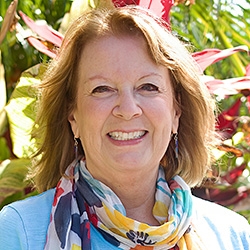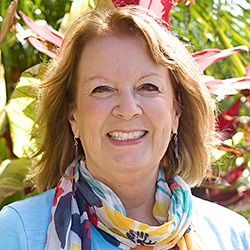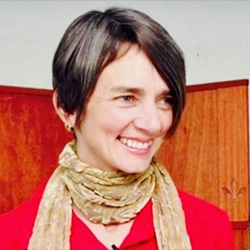

Search Results: resentment
-
If we’re selfish, all we care about is our own needs. If we’re selfless, our needs don’t enter the picture; others needs are the focus. But what if serving others meets our needs? What if being only selfish ultimately results in our needs being unmet? Do you find yourself bouncing between being a selfless doormat and then resenting it, and beating yourself up for being “selfish”? Instead, care about others’ needs AND your needs.
-
-
One of the premises in NVC is that behind all behavior and expressions are Universal Human Needs as the deeper motivators. And one of the key distinctions in NVC is that between Needs and Strategies. Try Alan Rafael Seid's exercise called "Peeling the Layers of the Onion, " a process for uncovering these needs — the deeper motivations — that underlie words and behaviors we may find disturbing or puzzling.
-
When we have few external resources (money, time, health connections, etc), we can still empower ourselves and one another. We can strengthen our internal resources, inspire people to join our cause, build solidarity, and influence others who have external resources to support us and our causes.
-
In the face of needs that are still hungry to be satisfied, we can expand our view, plus generate ideas and creativity that can find new paths forward. Try these tips to transform our complaint into commitment for a change in strategy that works with needs...
-
Building community well-being through bonds, bridges, and restorative relationships.
-
Much like other asymmetric relationships (such as therapist and client), there are complications related to power dynamics that can arise with any NVC trainer having sex with a participant. For one, there's (counter)transference. And there's potential for things that may not move outside this asymmetric relationship -- such as projections where the participant, and/or the trainer, is guided by un-healed pain of their "inner child".
-
Whether its pandemics, climate change, damage to the environment or other massive challenges that humanity faces, what are we to do if we can't agree on even the most basic information and knowledge? From empathic understanding we can focus on shared, universal human needs (where there is no conflict or disagreement) underlying our perceptions, and feelings. Then we can see if there are ways we can agree on to meet those needs.
-
Living Compassion in an Ever-Changing World is the last course that Robert Gonzales offered before his passing in November of 2021. It is an intermediate course whose purpose is to deepen our conscious connection to our own vital life force, to develop skills that support inner healing, and to grow and strengthen daily practices that allow us to truly live life to the fullest.
-
- Understand the dynamics of power struggles
- Explore practical strategies for navigating power imbalances
- Discover ways you can share power in various relationships
- Explore how NVC supports a move away from domination, into shared power
-
Trainer tip: Read on for the three stages of emotional maturity. In the third stage, we integrate the first two stages. We come to realize that everyone is responsible for their own feelings, but we also recognize our role if we do something that stimulates pain in another person. We also start to value the needs of everyone, rather than just one party's needs over the other.
-
When it comes to how you're achieving your goals, notice what you value. Is achievement coming at others' expense? Where is your sense of worth and validation derived from? Do other people in some way set the bar that you strive to surpass? Without comparing to other people, what does success mean to you? Read on for a related story.
-
When someone offers continual unsoliticed feedback or advice, setting a boundary may not be easy if you care about how they might hear you. And if you don't set a boundary, you may eventually become resentful and say something you regret. Instead, here are six ways to respond, with varying degrees of effectiveness.
-
When a relationship has both differentiation and bonding you can express differences and unmet needs, and responsibly do your own thing without it being a threat to the bond with another. You honor each others choices. There's trust rather than a sense of resentful obligation. Needs-based negotiation is easier. See if you tend to emphasize only differentiation or bonding in your relationships. Imagine how to support the opposite.
-
Often, honoring someone’s choice supports more connection. Thus, checking in with someone’s choice to listen or not (offering autonomy) sets the stage for being heard more fully. On the other hand, when someone has the perception that you are talking to them without considering their choice, resentful listening might result. Here are ways to mindfully check in about choiceful listening before starting a conversation.
-
- Access, follow and train your intuition: how to know without knowing;
- Navigate difficult situations with care for all through an active awareness of your own power, as well as other sources of power in the room;
- Remain aware of who speaks and who doesn’t, of those whose pain is invisible – and what you can do about it;
- Walk towards someone presenting a challenge to a group you are facilitating, while continuing to hold care for the entire group, and more.
-
What does nonviolence have to do with group facilitation?
Miki Kashtan believes that nonviolence is a way of being and living that orients us in all our thoughts, words and deeds toward the integration of truth, love and courage. All nonviolent individual and collective actions are aimed at preserving what serves life and challenging what does not. Facilitation is one clear path for bringing nonviolence to the world!
How can we act now, as facilitators, as if the world of our dreams, the Beloved Community, is already in place?
-
- Discover what is yours to do in response to our growing global crises
- Weave nonviolence more deeply into how you live and lead
- Receive ongoing support within and beyond the course in how to be effective and alive while doing what’s yours to do
- Increase your capacity to face and mourn current reality as a source of greater choice and energy
- Be a part of transforming the legacy of scarcity, separation, and powerlessness into a livable future
-
Here are five practical ideas for creating simple agreements with a group when conflict arises.
-
- Adapted from Marshall’s bestselling book and taught in his own words
- Learn how to utilize empathy to safely confront powerful emotions
- Discover how to overcome the blocks to compassion
- Open to your natural desire to enrich the lives of those around you!

Quick Links
Subscription Preferences
Stay In Touch!
Looking for ways to keep up with NVC Academy news, get special offers, free resources, or words of inspiration? Here are five ways to stay engaged:


















